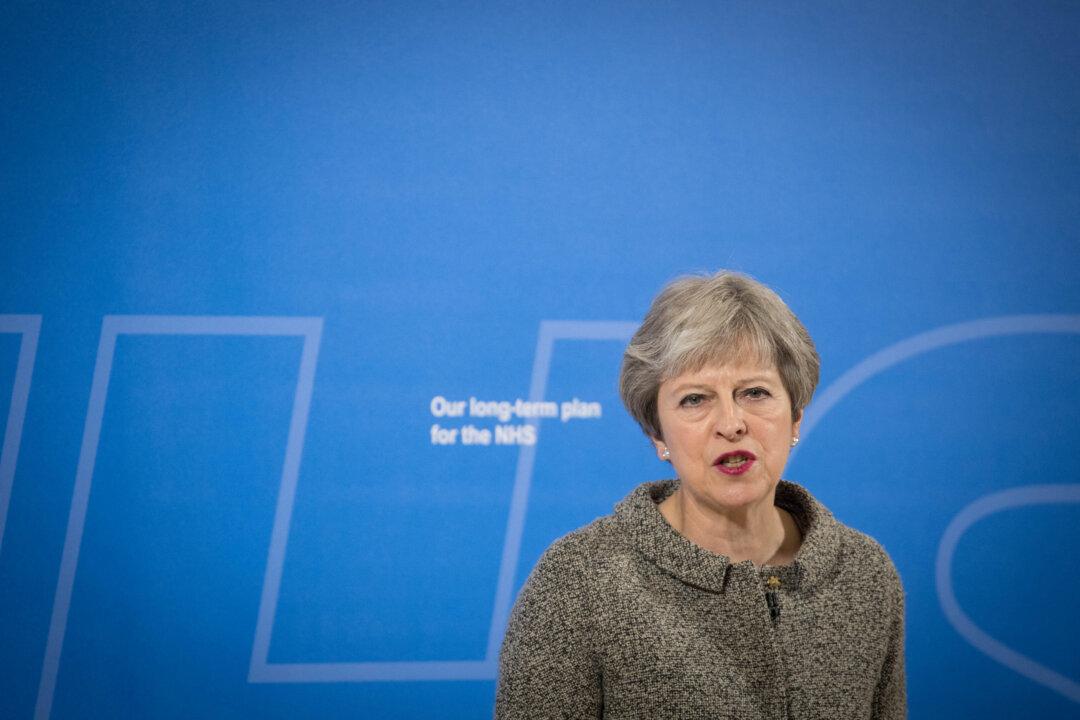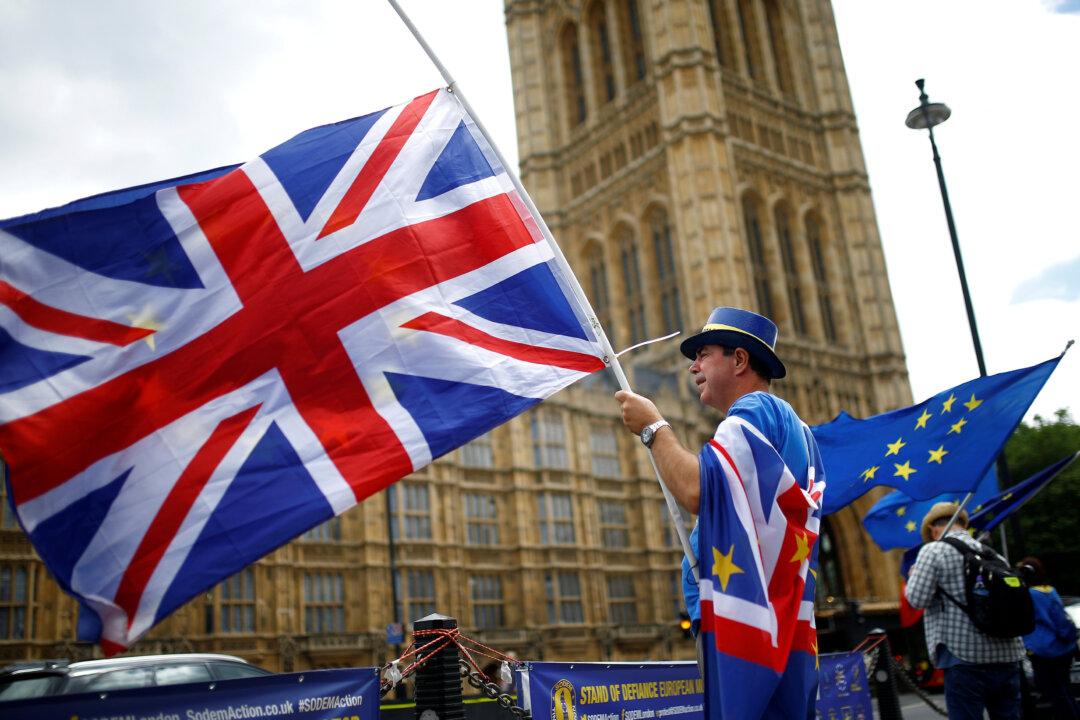LONDON—British Prime Minister Theresa May said on June 18 that the 20-billion-pound ($26.57-billion) funding boost to the country’s National Health Service will be partly funded by a tax increase.
The government also said that economic growth and savings from Britain exiting the European Union would help cover the cost.





